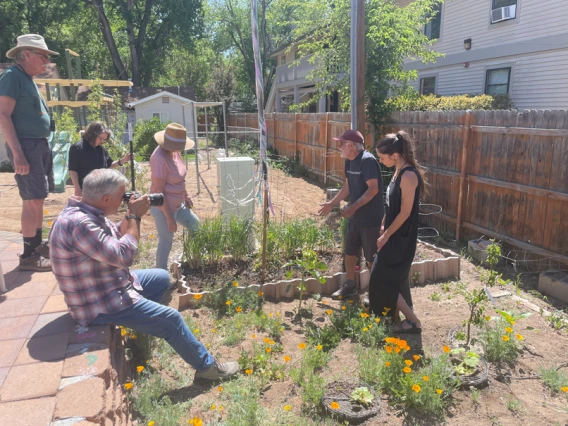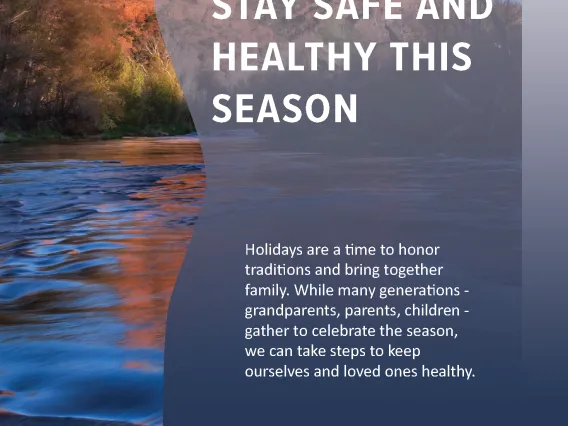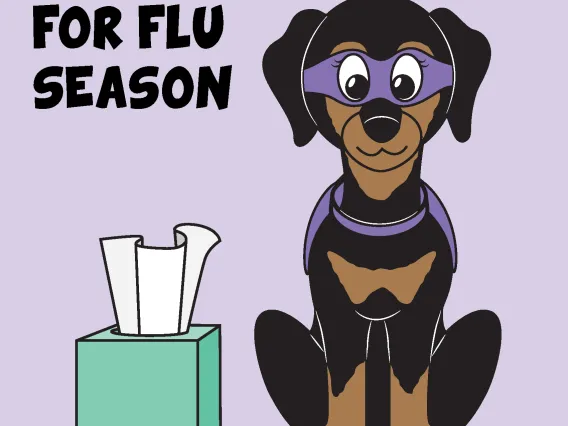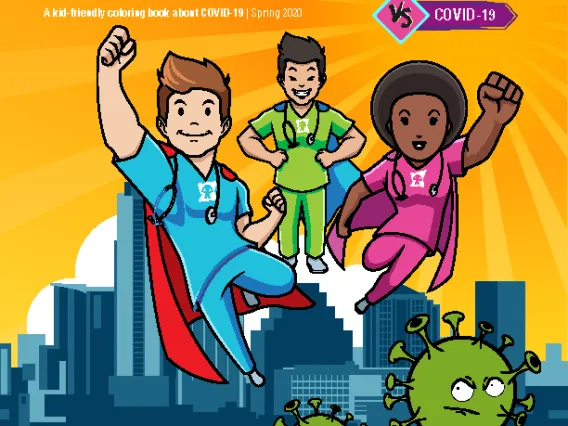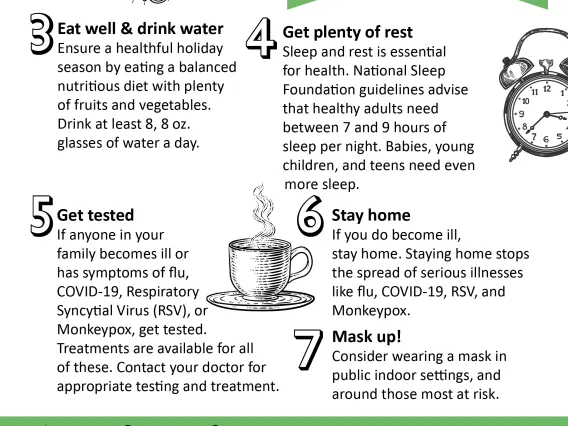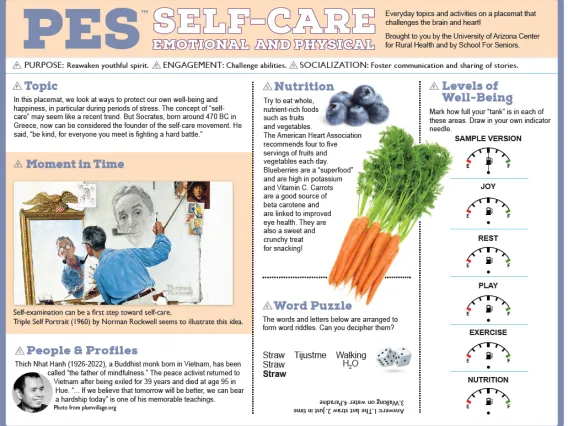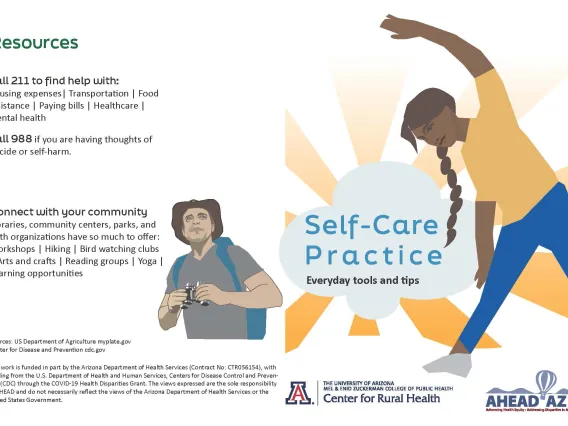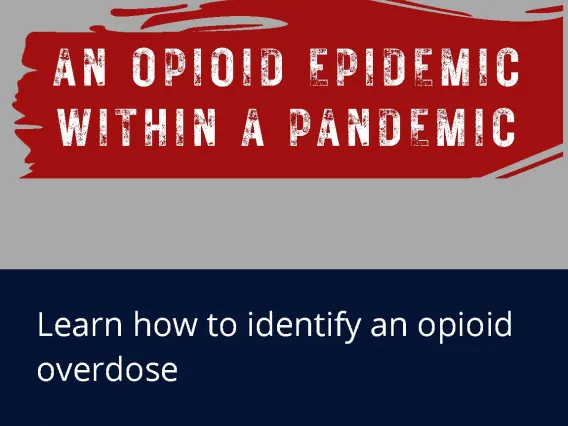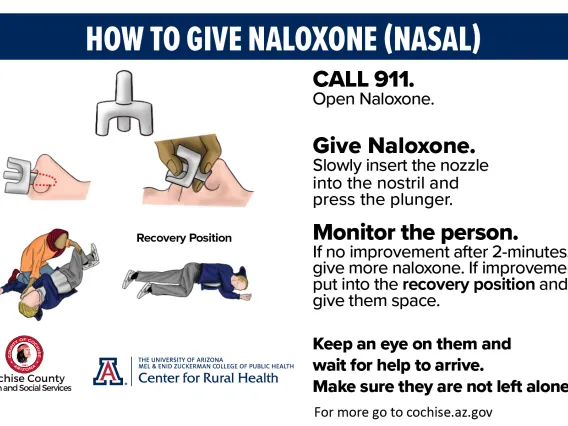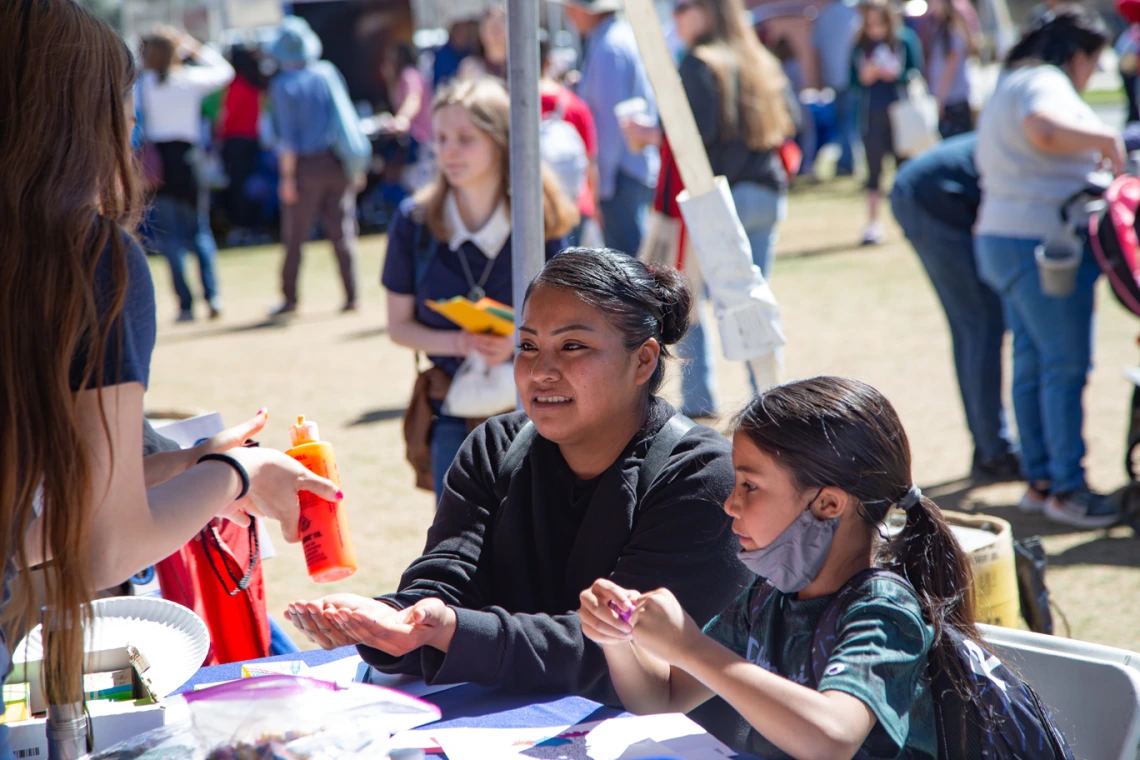
In collaboration with community partners across the state, the work of AHEAD AZ aimed to promote community resilience through:
Community education and engagement
Public health and healthcare workforce well-being and resilience, support, training, and education
Supporting COVID-19 vaccination and recovery
AHEAD Community Partners

AHEAD Public Health Fundamentals Training
Public Health Fundamentals Training
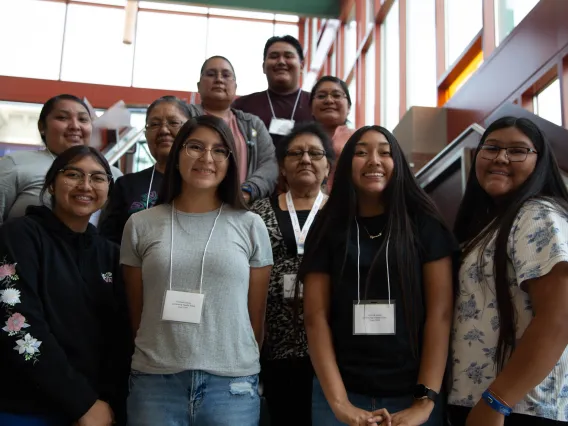
American Indian Area Health Education Center
American Indian Health Workforce Development
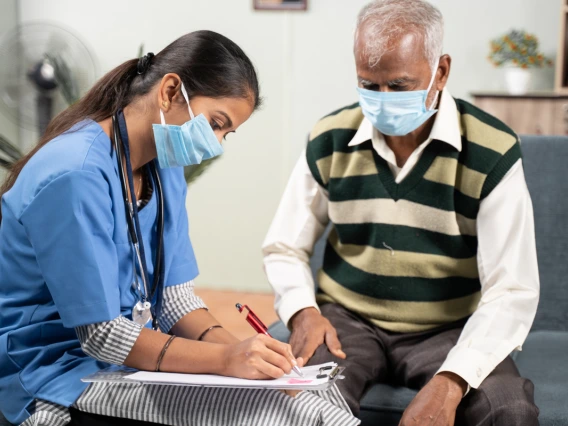
Arizona Hospital and Healthcare Association
Advance Care Planning

Arizona Library Association
Public Health Champions Community Component


Central Arizona Area Health Education Center
Fast-track Online Medical Office Specialist Pilot Program and Safe Zone Workshops

Colorado Plateau Center for Health Professionals
Safety Net Health worker Resiliency Program
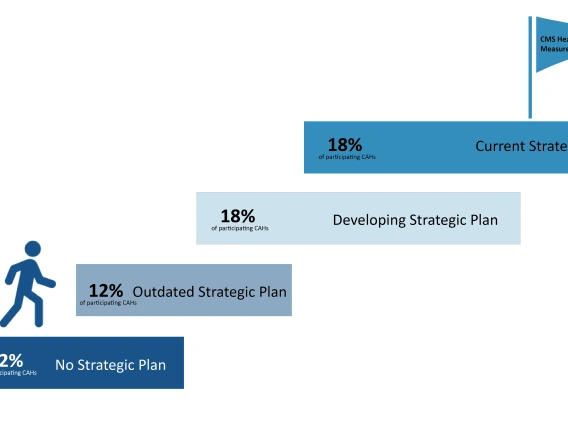
Hospital Commitment to Health Equity
Arizona Critical Access Hospitals (CAHs) Strategic Plan Assessment: Centers for Medicare and Medicaid Services (CMS) Measure
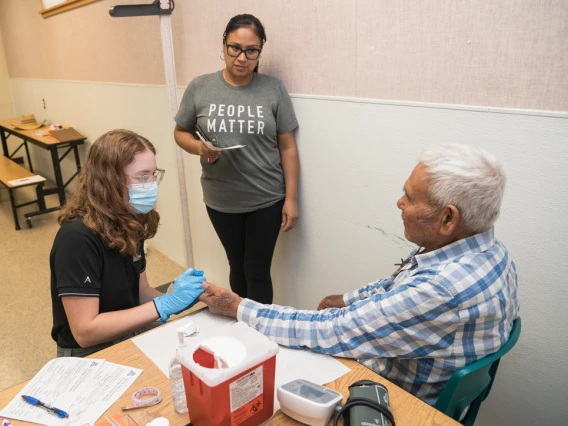
Mobile Outreach Vaccination Education for Underserved Population MOVE UP
The U of A Primary Prevention Mobile Health Unit (MHU)

Southern Arizona Area Health Education Center
Cochise Community College Medical Assistant Program
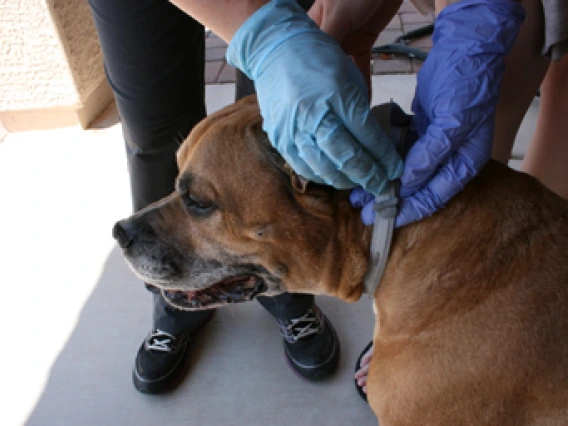
Workforce trainings
Navigator Training in Pima County
The AHEAD team and Pima County Health Department developed a navigator model to facilitate the work of community health workers/representatives (CHW/CHR) and health coaches in Pima county.
This model aimed to build navigator capacity through the development of two key resources:
- Comprehensive toolkit of social and health services in Pima County classified by zip code and district.
- Navigator training included topics such as Understanding Social Determinants of Health, Motivational Interviewing, Building Community Resilience and others.
The AHEAD team hosted a podcast series to highlight the innovative work being done in the state of Arizona by its own residents.
What is the hidden impact of COVID-19 in communities across the region and how are people helping to empower their own neighbors? The AHEAD team spoke with subject matter experts, researchers, and community leaders to explore the narratives behind the good work being done to combat the global pandemic in our backyard.
Schedule of Podcast Guests:
- Pediatrics and the Pandemic: An interview with Dr. Conrad Clemens on the impact of the COVID-19 pandemic on Arizona's children. (Feb. 9. 2023)
- Introduction: Conversation with the Children's Action Alliance Join us as we tackle policy and health issues impacting families in the state of Arizona.
Supporting Arizonan Communities that were disproportionately affected by the COVID-19 pandemic
The AzCRH AHEAD initiative served communities and populations across Arizona that were disproportionately affected by the COVID-19 pandemic. The initiative addressed COVID-19 health and health related disparities* in myriad capacities including provision of public health training to tribal community health representatives, supporting rural and small libraries across the state implementing programming that addressed community health and well-being, collaboration with MOVE UP mobile health units to expand access to COVID-19 vaccination and testing to underserved and rural communities, education outreach to rural communities on substance use disorder/opioid use disorder (SUD/OUD), and the establishment of a practitioner-to-practitioner COVID-19 support line connecting rural healthcare providers with clinical experts.
* Healthy People 2030 (https://health.gov/healthypeople) defines a health disparity as “a particular type of health difference that is linked with social, economic, and/or environmental disadvantage” that adversely affect groups of people who have systematically experienced greater obstacles of health.
Mobile Outreach Vaccination Education for Underserved Populations (MOVE UP)
AHEAD and MOVE UP lead by Dr. Cecilia Rosales removed the challenges that rural areas, communities of color, and underserved populations faced when obtaining vaccines, such as transportation, access to sites, a lack of registration assistance, and language barriers. While fixed-site and drive-up COVID-19 vaccine points of distribution (POD) work in urban areas, AHEAD and MOVE UP reach farmers, truck drivers, and essential workers at their workplace in rural and border communities, lessening the concern of taking time off from their labor activities. Additionally, the teams disseminated bilingual (Spanish/English) information through social media and visuals.
Reflections on the COVID Response, Arizona Rural Health Conference
Links to MOVE UP events and virtual sessions:
Substance Use Disorder (SUD)/Opioid Use Disorder (OUD)
The COVID-19 pandemic presented multiple challenges for people with SUD and OUD, people seeking treatment, and people in recovery. The National Institute on Drug Abuse reported that while people with a SUD are more likely to require hospitalization and die from COVID-19than those without SUD, the rate is eight times higher for those diagnosed with a SUD during the pandemic. AHEAD is focused on connecting people with SUD/OUD to COVID-19 related, mental, and social services (e.g., vaccine, testing; transportation, housing aid) so they can continue their healing journey. Likewise, AHEAD worked with partners (e.g., Overdose Data to Action (OD2A), Rural Opioid Response Implementation (RORI), MOVE UP) to educate communities, including health workers and students, on the intersection between COVID-19 and SUD/OUD and factual evidence of COVID-19 vaccine.
COVID-19 Toolkits & Resources
The Arizona Partnership for Immunization
NIH Community Engagement Alliance CEAL
De Beaumount Bold Solutions for Healthier Communities
Public Health Communication Collaborative
Covid-19 Toolkits- Center for Disease Control and Prevention
Made to Save- COVID-19 vaccines were made to save
National Resource Center for Refugees, Immigrants, and Migrants (NRC-RIM)
National Foundation for Infectious Disease
COVID-19 Communication Network- John Hopkins
Rural Vaccine Confidence Initiative
COVID-19 Resources for Individuals with Disabilities
Rural Disability Hub (University of Montana)
AZ Developmental Disabilities Planning Council
COVID-19 Materials for People with IDD and Care Provides (CDC)
The AHEAD program partnered with local public health and healthcare agencies in rural Arizona to support COVID-19 response and recovery activities. Our work ranged from addressing the needs of our partners by connecting them with other agencies and resources, to developing and implementing education, outreach and communication materials to support the front lines.
Below are some of our partners who we collaborated with to achieve our mission:
- ADHS - Arizona Department of Health Services
- MOVEUP - Mobile Outreach Vaccination & Education
- AzHHA - Arizona Hospital and Healthcare Association
- AZHEALTHTXT
- Pima County Health Department
- CEAL - Community Engagement Alliance
- The ARC of Arizona
AHEAD Lead




